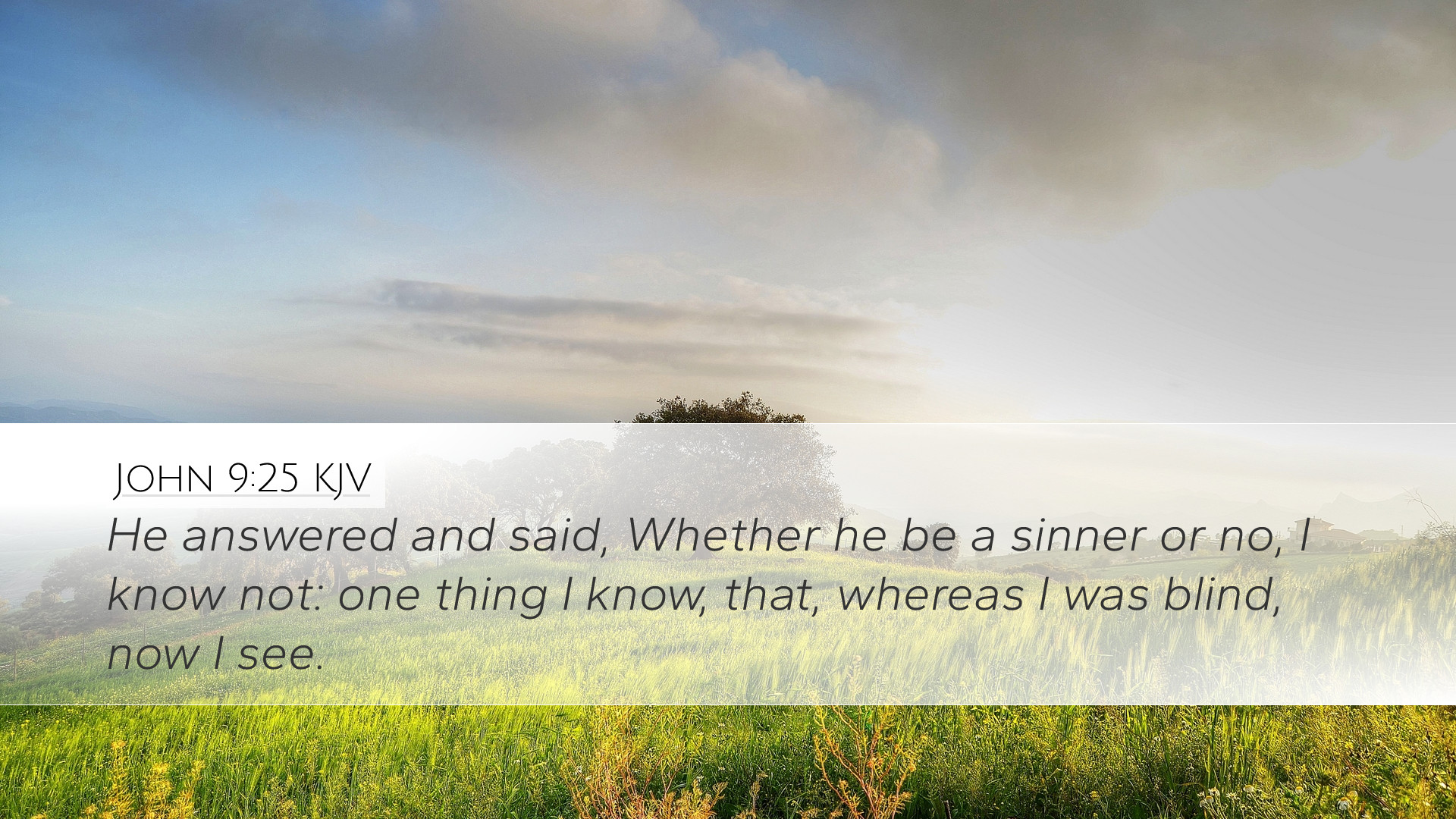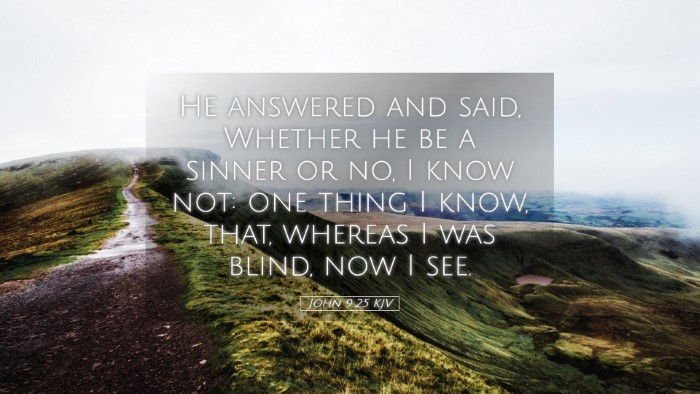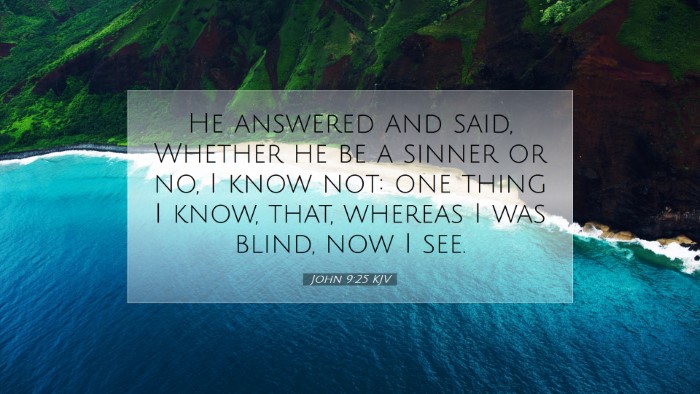Commentary on John 9:25
John 9:25 states: "He answered and said, Whether he be a sinner or no, I know not: one thing I know, that, whereas I was blind, now I see." This verse encapsulates a profound transformation and serves as a testimony of personal experience in contrast to theological debates. Below is a combined commentary from renowned public domain sources that elucidate the profound implications of this verse.
Contextual Background
The account of the healing of the man born blind is not merely a miracle; rather, it is a pivotal moment showcasing Jesus' divine authority and the response of faith amidst skepticism. The healing occurs in the broader context of increasing tension between Jesus and the religious leaders of the time. The man's response reflects a simple yet powerful faith that transcends his lack of theological training.
Insights from Matthew Henry
Matthew Henry highlights several key aspects of this verse:
- Personal Experience: Henry emphasizes that the man's emphasis on his personal transformation ("I was blind, now I see") serves as an irrefutable testimony to the power of Christ. This not only serves as an assertion of his faith but also affirms the miraculous nature of Jesus' intervention.
- Contrasting Knowledge: The blind man's distinction of not knowing whether Jesus was a sinner reflects the tension between worldly wisdom and spiritual insight. It illustrates that true understanding comes not from theological expertise but from divine encounter.
- Faith Amidst Doubt: Henry observes that the healed man does not engage in debates about Jesus' identity; rather, he focuses on the undeniable change in his life. This suggests a model of faith that prioritizes experiential knowledge over theoretical arguments.
Insights from Albert Barnes
Albert Barnes elaborates on the implications of the man's assertion from a pastoral perspective:
- Transformation Testimony: Barnes underscores the weight of personal testimony. The healed man's claim serves as an evangelistic tool, showcasing how one's life can reflect the glory of God. Such testimony is pivotal for conversion and faith-building.
- Recognition of Grace: Barnes notes that the man's ability to confess ignorance about theological specifics while acknowledging his healing exemplifies humility and the acknowledgment of God's grace in personal lives. It reminds believers that intellectual understanding is subordinate to experiencing God's transformative power.
- Encouragement for Believers: Barnes encourages believers not to be intimidated by those who seek to debate theological minutia. Instead, they should hold firm to their transformative experiences with God, much like the blind man did.
Insights from Adam Clarke
Adam Clarke provides an analytical view of this scripture:
- Blindness Metaphor: Clarke discusses the metaphorical significance of blindness and sight, noting that it often represents spiritual ignorance versus enlightenment. The blind man’s physical sight symbolizes a broader spiritual awakening that comes with the presence of Christ.
- Nature of Christ's Interventions: He stresses that Christ often worked in unconventional ways (such as with mud) to challenge societal norms and religious expectations, thereby demonstrating that divine action often defies human wisdom.
- Finality of Personal Experience: Clarke captures the essence of the healed man's response to the critics: the certainty of his experience overshadows all other discussions, indicating that one’s encounter with Christ is a firm point of reference in discussions of faith.
Theological Implications
John 9:25 serves to remind scholars and church leaders alike of several theological dimensions:
- Redemptive Suffering: The blind man’s lifelong suffering before his healing leads to reflections on the role of suffering in believers’ lives. It illustrates that God can use personal trials as a prelude to greater testimonies of faith.
- Authentic Faith: This verse encourages genuine belief rooted in experience rather than mere doctrinal adherence, highlighting a key tenet of theological education—to understand and communicate the faith as lived experience.
- Christology: This passage contributes to the broader understanding of Christ's identity and mission; affirming Him as the One who brings light to darkness, both physically and spiritually.
Conclusion
In conclusion, John 9:25 serves as a foundational text that emphasizes the importance of personal conviction and experience in matters of faith. The juxtaposition of the blind man's testimony against the criticisms of the Pharisees invites believers to focus on their transformational experiences with Christ, which serve as irrefutable evidence of His power and love. This commentary synthesizes key insights from respected theological voices, providing a resource for further reflection and study.


